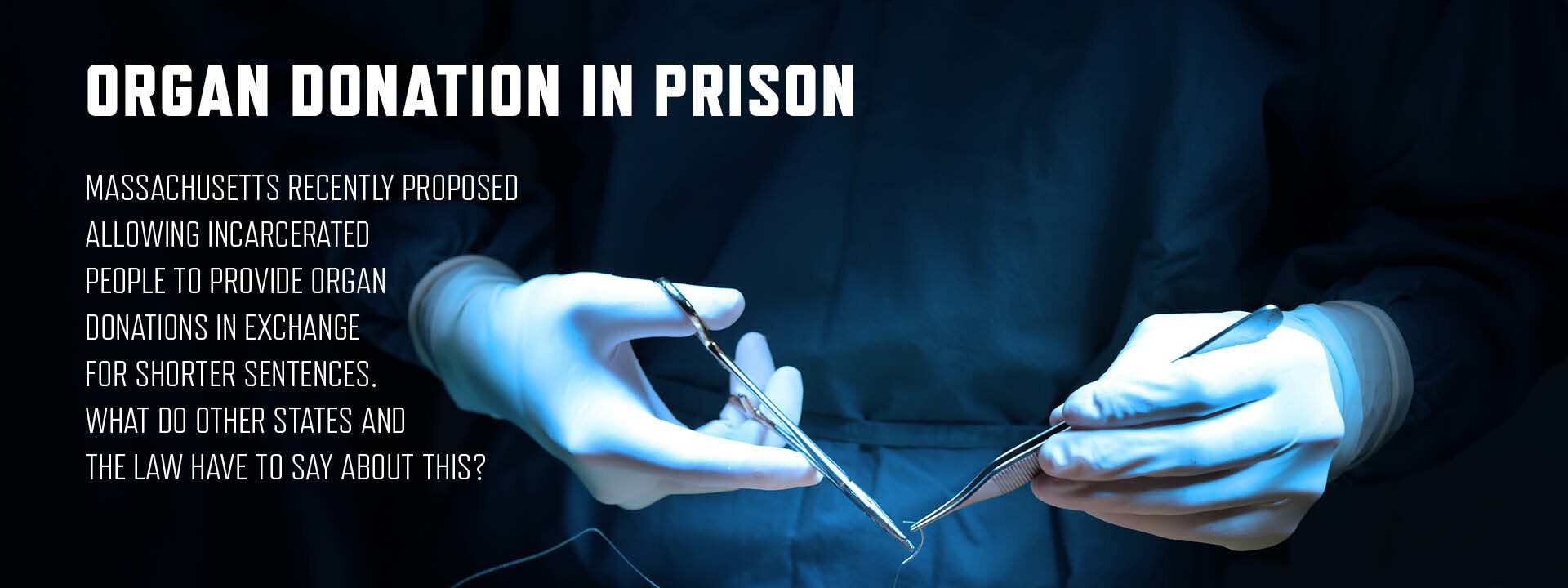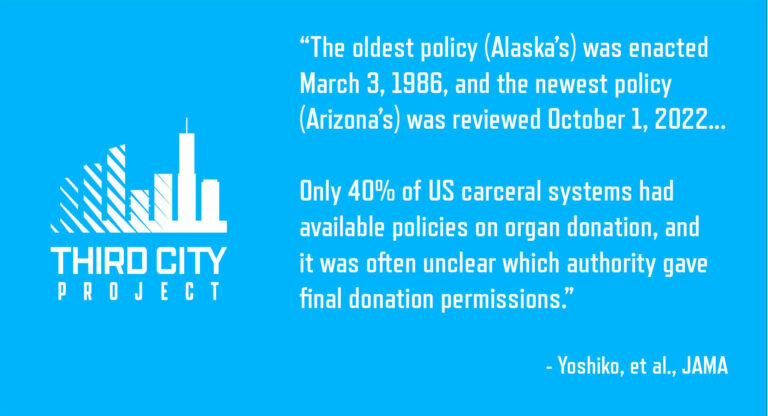
Massachusetts legislators recently introduced a bill to allow incarcerated people to provide organ donations in exchange for shorter sentences. The bill includes few details about who would administer this program or how it would function. If it passes, however, it would require that eligible persons receive a sentence reduction of no less than 60 and no more than 365 days in exchange for donating bone marrow or organs.
This program hopes to address two pressing issues: mass incarceration and organ procurement. Proponents of the bill recognize that prison sentences have gotten progressively longer. The bill’s sponsors also want to create incentives for the roughly 11,000 people in Massachusetts prisons to help meet the needs of the roughly 100,000 people in the US waiting for an organ with a donation, or “anatomical gift.” But this seemingly simple exchange isn’t the unambiguous win-win that some would think.
It is important to note that this proposal is not unique to Massachusetts. Other states have considered similar initiatives, such as South Carolina’s SB 480 in 2007, but ultimately rejected them due to ethical and logistical concerns. The National Organ Transplant Act of 1984 prohibits the sale of organs, but exchanging organs for goods or services, such as a sentence reduction, remains a legally ambiguous area.
Such proposals to allow incarcerated individuals to donate organs in exchange for sentence reductions raise concerns about the autonomy of people in prisons and jails. While the bill may allow eligible individuals to choose to donate, the length of sentence reduction may be unduly coercive, particularly if they are in dangerous, overcrowded, or understaffed prisons. Medically vulnerable people may feel compelled to engage in procedures that have a greater-than-minimal risk merely to improve their chances of being granted parole. Critics argue that the proposal creates a system in which certain individuals may be valued more for their organs than their lives and that it reinforces a notion that prisoners’ bodies are property of the state.
The relationship between prison residents and the healthcare providers that serve them is complex and differs greatly from person to person and from place to place. Prisons have been the sight of grotesque abuses of authority and unethical medical experimentation as recently as the 1970’s. Books, including Acres of Skin, chronicle testing of pharmaceuticals, treatments, and carcinogens on prison residents, often without their informed consent. While contemporary practices carefully safeguard against such unethical and harmful research, the legacy of these programs fundamentally undermines the relationship between the prison healthcare provider and the incarcerated patient.
A recent lawsuit against the Arizona DOC details the preventable deaths and neglect in the state’s prisons. Federal Judge Roslyn Silver described the medical treatment provided by the DOC as “plainly grossly inadequate.” Arizona is far from the only system to have recently documented abuses. In February of 2023 alone, the Federal Bureau of Prisons closed one facility for failing to prevent deaths, the Department of Justice announced an investigation into the Harris County Jail, and Colorado residents have grown alarmed by recent custodial deaths in the state. These events call into question the ability of even well-intentioned providers to safely and effectively maintain an organ donation program–including the successful delivery of post-surgical care.
While Massachusetts is not the first to incentivize organ donation in prisons, the proposed bill represents a departure from current trends in criminal-legal legislation. Despite the ethical tensions posed by this program, it could ultimately prove successful in reducing the number of hopeful organ recipients or the length of time these patients are forced to wait. If successful, though, this program could be used to justify widespread adoption in other carceral systems under the guise of public health interventions. This could place enormous strain on prison healthcare systems if decision-makers prioritize the well-being of organ recipients over those that are experiencing incarceration. And if this program is adopted and unsuccessfully implemented, failures could be used to demonize incarcerated people further.
To learn more about the current policy landscape for organ donation in prisons–including registration for posthumous anatomical gifts–check out this recent publication in JAMA.


